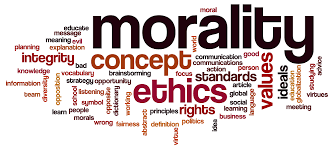The Rise of AI and ChatGPT: Transforming Communication
Artificial Intelligence (AI) has rapidly evolved over the past few years, becoming an integral part of various industries. One of the most significant advancements in AI is the development of language models, with OpenAI’s ChatGPT leading the charge. This technology is transforming how we interact with machines and each other.
What is ChatGPT?
ChatGPT is a language model developed by OpenAI that uses deep learning techniques to generate human-like text. Based on the GPT (Generative Pre-trained Transformer) architecture, it can understand context, answer questions, and engage in conversations on a wide range of topics. The model has been trained on diverse internet text, allowing it to produce coherent and contextually relevant responses.
Applications of ChatGPT
The versatility of ChatGPT makes it applicable across various domains:
- Customer Support: Many companies are integrating ChatGPT into their customer service systems to provide quick and efficient responses to inquiries.
- Content Creation: Writers and marketers use ChatGPT to brainstorm ideas or generate content drafts, saving time and enhancing creativity.
- Education: Educators employ ChatGPT as a tutoring tool that can assist students with homework or explain complex concepts in simpler terms.
- Personal Assistance: Individuals use AI-powered chatbots for scheduling, reminders, and managing daily tasks.
The Impact on Communication
The introduction of AI models like ChatGPT has significantly impacted communication. It allows for more dynamic interactions between humans and machines, bridging gaps in understanding by providing immediate information access. Additionally, it enhances accessibility by offering support in multiple languages and simplifying complex information for broader audiences.
Challenges and Ethical Considerations
Despite its benefits, deploying AI models like ChatGPT comes with challenges. Concerns about data privacy, misinformation, and ethical use are prevalent. Ensuring that these models do not perpetuate biases present in training data is crucial for maintaining fairness and accuracy.
The Future of AI Communication
The future holds exciting possibilities for AI communication tools like ChatGPT. As technology advances, these models will become even more sophisticated, offering deeper insights and more personalized interactions. The ongoing development aims to create systems that not only respond but also understand human emotions better.
The rise of AI-driven communication tools marks a new era where machines play an active role in our daily lives. With responsible development and ethical considerations at the forefront, technologies like ChatGPT have the potential to enhance human capabilities significantly.
7 Ways AI ChatGPT Revolutionizes Efficiency, Creativity, and Communication
- 1. Enhances customer service efficiency by providing quick and accurate responses.
- 2. Facilitates content creation by generating ideas and drafts for writers and marketers.
- 3. Supports education as a tutoring tool to explain complex concepts in simpler terms.
- 4. Improves accessibility by offering multilingual support for diverse audiences.
- 5. Streamlines personal assistance tasks such as scheduling and reminders through AI chatbots.
- 6. Enables dynamic interactions between humans and machines, enhancing communication capabilities.
- 7. Continuously evolving to offer more sophisticated insights and personalized interactions.
Challenges of AI Chatbots: Bias, Context Limitations, and Privacy Concerns
- Potential for perpetuating biases present in training data, leading to biased or inaccurate responses.
- Limited understanding of context and inability to grasp nuanced or complex conversations.
- Concerns about data privacy and security when interacting with AI models like ChatGPT.
1. Enhances customer service efficiency by providing quick and accurate responses.
AI models like ChatGPT significantly enhance customer service efficiency by delivering quick and accurate responses to customer inquiries. By automating routine interactions, ChatGPT allows businesses to handle a higher volume of queries without compromising on quality. This rapid response capability not only reduces wait times for customers but also frees up human agents to focus on more complex issues that require personalized attention. As a result, companies can improve their overall customer satisfaction and streamline operations, leading to increased productivity and cost savings. Additionally, ChatGPT’s ability to learn from interactions ensures that it continuously improves its performance, adapting to the evolving needs of both businesses and their customers.
2. Facilitates content creation by generating ideas and drafts for writers and marketers.
AI models like ChatGPT significantly enhance content creation by providing writers and marketers with a powerful tool for generating ideas and drafting content. By analyzing vast amounts of data and understanding context, ChatGPT can suggest creative concepts and offer diverse perspectives, helping to overcome writer’s block and inspire fresh content strategies. It can quickly produce drafts that serve as a foundation for further development, allowing creators to focus on refining and personalizing the message. This capability not only streamlines the content creation process but also boosts productivity, enabling professionals to deliver high-quality material more efficiently.
3. Supports education as a tutoring tool to explain complex concepts in simpler terms.
AI models like ChatGPT serve as valuable tutoring tools in education by simplifying complex concepts, making them more accessible to students. With its ability to break down intricate topics into understandable language, ChatGPT helps learners grasp challenging material that might otherwise seem daunting. This capability is particularly beneficial for students who need additional explanations outside of classroom hours or those who prefer learning at their own pace. By providing personalized assistance and instant feedback, ChatGPT enhances the learning experience, fostering a deeper understanding and encouraging curiosity across various subjects.
4. Improves accessibility by offering multilingual support for diverse audiences.
AI models like ChatGPT significantly enhance accessibility by providing multilingual support, making it easier for diverse audiences to engage with content and services. This capability allows users from different linguistic backgrounds to access information, seek assistance, and communicate effectively without language barriers. By accommodating multiple languages, ChatGPT enables businesses and organizations to reach a broader audience, fostering inclusivity and ensuring that non-native speakers can participate fully in digital interactions. This not only democratizes access to information but also empowers individuals around the world by providing them with the tools needed to connect and collaborate on a global scale.
5. Streamlines personal assistance tasks such as scheduling and reminders through AI chatbots.
AI chatbots like ChatGPT are revolutionizing personal assistance by streamlining tasks such as scheduling and reminders. These intelligent systems can efficiently manage calendars, set up appointments, and send timely notifications, all through simple conversational interfaces. By understanding natural language, AI chatbots make it easy for users to interact with their devices without needing to navigate complex applications manually. This not only saves time but also reduces the cognitive load on individuals, allowing them to focus on more important tasks. As a result, AI-powered personal assistants enhance productivity and organization in everyday life.
6. Enables dynamic interactions between humans and machines, enhancing communication capabilities.
AI models like ChatGPT enable dynamic interactions between humans and machines, significantly enhancing communication capabilities. By understanding context and generating human-like responses, ChatGPT facilitates more natural and engaging dialogues. This capability allows for real-time assistance in various applications, from customer support to personal virtual assistants, making interactions more efficient and effective. The adaptability of ChatGPT to different conversational styles and topics ensures that users receive relevant and personalized responses, bridging the gap between human intuition and machine processing power. As a result, communication becomes more fluid, accessible, and tailored to individual needs, transforming how people interact with technology.
7. Continuously evolving to offer more sophisticated insights and personalized interactions.
One of the significant advantages of AI models like ChatGPT is their ability to continuously evolve, offering increasingly sophisticated insights and personalized interactions. As these models are exposed to more data and refined algorithms, they become better at understanding the nuances of human language and context. This evolution allows them to provide more accurate and relevant responses, catering to individual needs and preferences. The ongoing development ensures that ChatGPT can adapt to new information and trends, making it a valuable tool for users seeking tailored advice or solutions. This capability not only enhances the user experience but also broadens the potential applications of AI in various fields, from customer service to personal assistance.
Potential for perpetuating biases present in training data, leading to biased or inaccurate responses.
One significant concern with AI models like ChatGPT is their potential to perpetuate biases present in the training data, leading to biased or inaccurate responses. These models learn from vast datasets sourced from the internet, which may contain prejudiced or unbalanced perspectives. As a result, the AI might inadvertently reflect and amplify these biases in its outputs. This issue poses challenges in ensuring fairness and accuracy, as biased responses can influence user perceptions and decision-making. Addressing these concerns requires ongoing efforts to refine training processes, implement bias detection mechanisms, and ensure diverse and representative data inputs to mitigate unintended consequences.
Limited understanding of context and inability to grasp nuanced or complex conversations.
AI models like ChatGPT, despite their impressive capabilities, often struggle with limited understanding of context and an inability to fully grasp nuanced or complex conversations. While they can generate text that appears coherent and contextually relevant, these models lack true comprehension and the ability to discern subtle meanings or emotional undertones in dialogue. This limitation can lead to responses that are superficially appropriate but miss the deeper intent or sentiment behind a user’s query. Consequently, in scenarios requiring intricate understanding or empathy, ChatGPT may fall short, highlighting the ongoing challenge of developing AI systems that can truly emulate human-like understanding and interaction.
Concerns about data privacy and security when interacting with AI models like ChatGPT.
Concerns about data privacy and security are significant when interacting with AI models like ChatGPT. As these models require access to vast amounts of data to function effectively, there is a risk that sensitive or personal information could be inadvertently collected, stored, or misused. Users may worry about how their interactions are logged and whether their data could be exposed to unauthorized parties or used for purposes beyond the original intent. Ensuring robust data protection measures and transparent privacy policies is crucial to addressing these concerns, fostering trust among users, and safeguarding their information against potential breaches or misuse.





